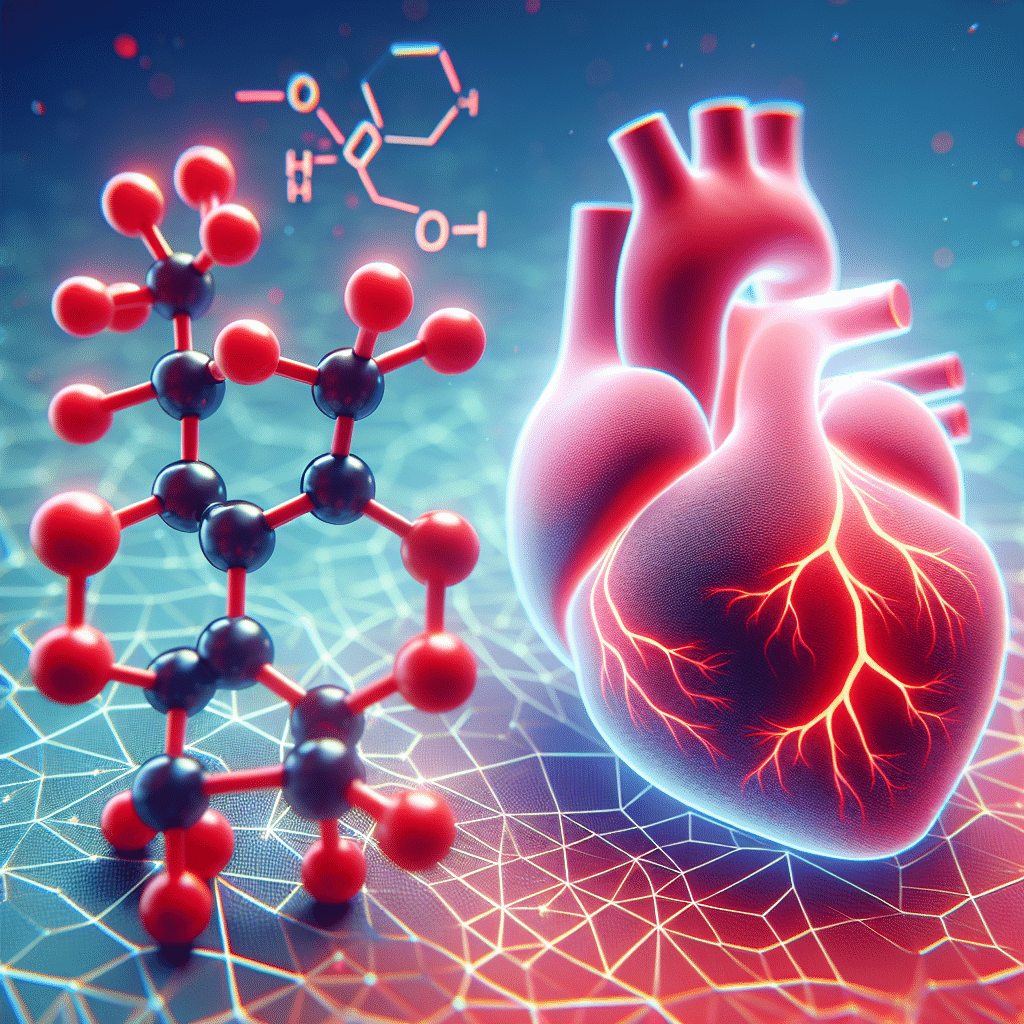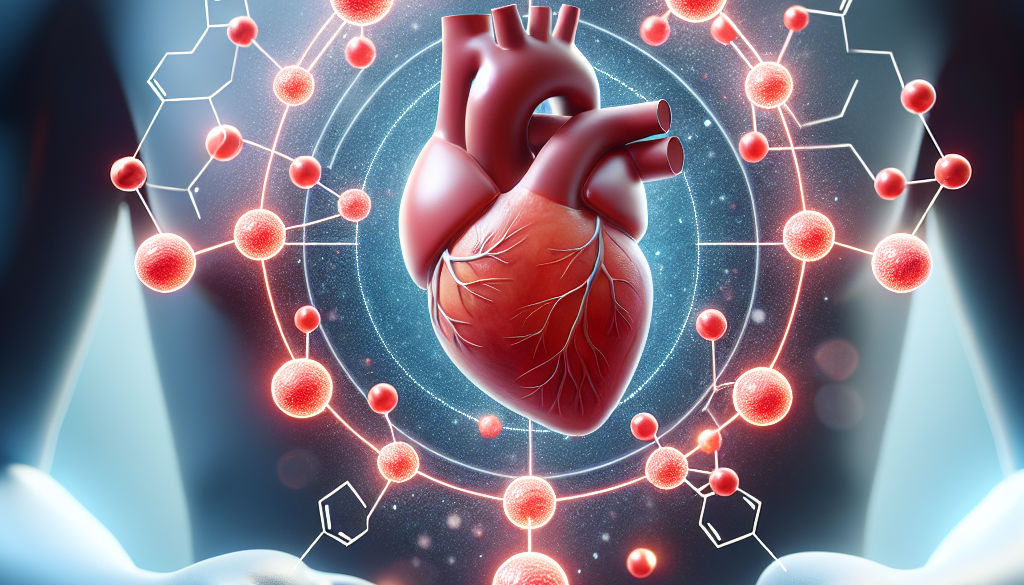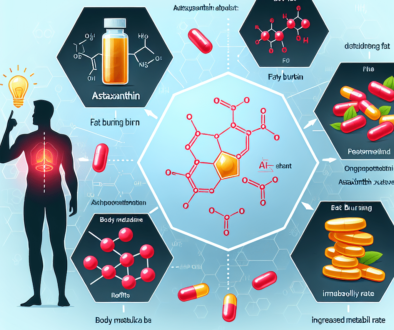Is astaxanthin bad for the heart?
-
Table of Contents
- Astaxanthin and Heart Health: Uncovering the Truth
- Understanding Astaxanthin
- The Heart of the Matter: Astaxanthin’s Cardiovascular Effects
- Impact on Blood Pressure
- Effect on Lipid Profiles
- Anti-inflammatory Properties
- Oxidative Stress Reduction
- Case Studies and Clinical Trials
- Recommended Dosages and Potential Risks
- Conclusion: Is Astaxanthin Beneficial for the Heart?
- ETprotein’s Protein Products: A Complement to Heart Health
Astaxanthin and Heart Health: Uncovering the Truth

Heart health is a primary concern for many individuals, and the role of dietary supplements in cardiovascular wellness has been a topic of much research and debate. Astaxanthin, a naturally occurring carotenoid found in certain algae, fish, and crustaceans, has gained attention for its potential health benefits. This article delves into the question: Is astaxanthin bad for the heart? We will explore the current scientific understanding of astaxanthin’s effects on cardiovascular health.
Understanding Astaxanthin
Astaxanthin is a potent antioxidant that gives salmon, shrimp, and flamingos their distinctive pink and red hues. It is produced by microalgae as a defense mechanism against harsh environmental conditions. When consumed, astaxanthin is known to exhibit strong free radical scavenging activity, which can protect cells from oxidative damage.
The Heart of the Matter: Astaxanthin’s Cardiovascular Effects
Given its antioxidant properties, astaxanthin has been studied for its potential to benefit heart health. The primary areas of interest include its impact on blood pressure, lipid profiles, inflammation, and oxidative stress—all factors that play a role in cardiovascular disease.
Impact on Blood Pressure
High blood pressure is a significant risk factor for heart disease. Some studies suggest that astaxanthin may help lower blood pressure by improving the elasticity of blood vessels and promoting better blood flow. However, more research is needed to confirm these findings and establish effective dosages.
Effect on Lipid Profiles
Abnormal cholesterol levels are another contributor to heart disease. Research indicates that astaxanthin may have a positive effect on lipid profiles by reducing levels of low-density lipoprotein (LDL) cholesterol and triglycerides while increasing high-density lipoprotein (HDL) cholesterol. These changes are beneficial for heart health.
Anti-inflammatory Properties
Inflammation is closely linked to heart disease. Astaxanthin’s anti-inflammatory effects may help reduce the risk of atherosclerosis, a condition where plaque builds up in the arteries, leading to heart attacks and strokes. By potentially lowering inflammation, astaxanthin could play a role in preventing these serious cardiovascular events.
Oxidative Stress Reduction
Oxidative stress is a state where there is an imbalance between free radicals and antioxidants in the body, leading to cell damage. Astaxanthin’s ability to neutralize free radicals may protect the heart and blood vessels from oxidative stress, thereby reducing the risk of heart disease.
Case Studies and Clinical Trials
Several clinical trials have investigated the effects of astaxanthin on heart health. For instance, a study published in the journal “Atherosclerosis” found that astaxanthin supplementation reduced oxidative stress and improved the function of the blood vessel lining in overweight and obese individuals. Another study in “Marine Drugs” reported that astaxanthin improved blood flow and reduced markers of inflammation in healthy adults.
Recommended Dosages and Potential Risks
While astaxanthin is generally considered safe, it is crucial to adhere to recommended dosages. Most studies have used doses ranging from 4 to 12 mg per day, which appear to be well-tolerated. However, exceeding these amounts could potentially lead to adverse effects. It is always best to consult with a healthcare provider before starting any new supplement regimen.
Conclusion: Is Astaxanthin Beneficial for the Heart?
The current body of research suggests that astaxanthin is not bad for the heart; in fact, it may offer protective benefits. Its antioxidant and anti-inflammatory properties, along with its potential to improve lipid profiles and blood pressure, make it a promising supplement for cardiovascular health. However, more extensive and long-term studies are needed to fully understand its effects and establish definitive guidelines for its use.
ETprotein’s Protein Products: A Complement to Heart Health
In addition to considering supplements like astaxanthin, incorporating high-quality protein sources into your diet is essential for overall health, including heart health. ETprotein offers a range of organic bulk vegan proteins that can be a valuable addition to a heart-healthy diet. Their products are non-GMO, allergen-free, and characterized by a neutral taste, making them an excellent choice for those looking to support their cardiovascular wellness through nutrition.
About ETprotein:
ETprotein, a reputable protein and L-(+)-Ergothioneine (EGT) Chinese factory manufacturer and supplier, is renowned for producing, stocking, exporting, and delivering the highest quality organic bulk vegan proteins and L-(+)-Ergothioneine. They include Organic rice protein, clear rice protein, pea protein, clear pea protein, watermelon seed protein, pumpkin seed protein, sunflower seed protein, mung bean protein, peanut protein, and L-(+)-Ergothioneine EGT Pharmaceutical grade, L-(+)-Ergothioneine EGT food grade, L-(+)-Ergothioneine EGT cosmetic grade, L-(+)-Ergothioneine EGT reference grade and L-(+)-Ergothioneine EGT standard. Their offerings, characterized by a neutral taste, non-GMO, allergen-free attributes, with L-(+)-Ergothioneine purity over 98%, 99%, cater to a diverse range of industries. They serve nutraceutical, pharmaceutical, cosmeceutical, veterinary, as well as food and beverage finished product distributors, traders, and manufacturers across Europe, USA, Canada, Australia, Thailand, Japan, Korea, Brazil, and Chile, among others.
ETprotein specialization includes exporting and delivering tailor-made protein powder and finished nutritional supplements. Their extensive product range covers sectors like Food and Beverage, Sports Nutrition, Weight Management, Dietary Supplements, Health and Wellness Products, and Infant Formula, ensuring comprehensive solutions to meet all your protein needs.
As a trusted company by leading global food and beverage brands and Fortune 500 companies, ETprotein reinforces China’s reputation in the global arena. For more information or to sample their products, please contact them and email sales(at)ETprotein.com today.











